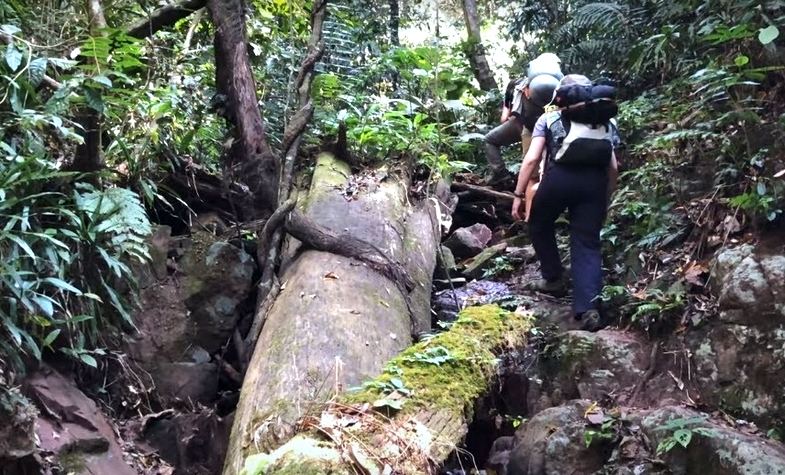Health, medicals and safety in Laos
Before visiting
Laos and other Southest Asia countries, you may need to get vaccinations and medications for vaccine-preventable diseases and other diseases you might be at risk during your travel. Your doctor or health-care provider will determine what you will need, depending on factors such as your health and immunization history, areas of the country you will be visiting, and planned activities.
To have the most benefit, see a health-care provider at least 4–6 weeks before your trip to allow time for your vaccines to take effect and to start taking medicine to prevent malaria if you need it. Even if you have less than 4 weeks before you leave, you should still see a health-care provider for needed vaccines, anti-malaria drugs, and other medications and information about how to protect yourself from illness and injury while traveling.
Pack medications in their original, clearly labeled containers. A signed and dated letter from your physician describing your medical conditions and medications, including generic names, is also a good idea. If carrying syringes or needles be sure to have a physician’s letter documenting their medical necessity. If you have a heart condition bring a copy of your ECG taken just before traveling.
In most Southeast Asian countries you can buy many medications over the counter without a doctor’s prescription, but it can be difficult to find some of the newer drugs, particularly the latest antidepressant drugs, blood pressure medications, and contraceptive pills.
We recommend that you see a health-care provider who specializes in Travel Medicine. If you have a medical condition, you should also share your travel plans with any doctors you are currently seeing for other medical reasons.
If you travel to more than 1 country, it is good if the doctor knows as he will help you to get exact vaccinations and necessary medical information for your safety.
Vaccinations
The only vaccine required by international regulations is yellow fever. If you have been to any country that belonged to the yellow-fever region within the 6 days before migrating to Southeast Asia, you will have to show valid proof of vaccination. If you are traveling to Southeast Asia from Africa or South America you should check to see if you require proof of vaccination.
Specialized travel-medicine clinics are your best source of information; they stock all available vaccines and will be able to give specific recommendations for you and your trip. The doctors will take into account factors such as past vaccination history, the length of your trip, activities you may be undertaking, and underlying medical conditions, such as pregnancy.
Most vaccines don’t produce immunity until at least two weeks after they’re given, so visit a doctor four to eight weeks before departure.
Medical checklist
Recommended items for a personal medical kit:
1. antibacterial cream, eg Muciprocin
2. antibiotics for skin infections, eg Amoxicillin/Clavulanate or Cephalexin
3. antibiotics for diarrhoea, eg Norfloxacin or Ciprofloxacin; Azithromycin for bacterial diarrhoea; and Tinidazole for giardiasis or amoebic dysentery
4. antifungal cream, eg Clotrimazole
5. antihistamines for allergies, eg Cetrizine for daytime and Promethazine for night
6. anti-inflammatories, eg Ibuprofen
7. antinausea medication, eg Prochlorperazine
8. antiseptic for cuts and scrapes, eg Betadine
9. antispasmodic for stomach cramps, eg Buscopa
10. contraceptives
11. decongestant for colds and cases of flu, eg Pseudoephedrine
12. DEET-based insect repellent
13. diarrhoea ‘stopper’, eg Loperamide
14. first-aid items such as scissors, plasters (Band-Aids), bandages, gauze, thermometer (electronic, not mercury), sterile needles and syringes, safety pins, and tweezers
15. indigestion medication, eg Quick Eze or Mylanta
16. laxatives, eg Coloxyl
17. migraine medication (your personal brand), if a migraine sufferer
18. oral-rehydration solution for diarrhoea, eg Gastrolyte
19. paracetamol for pain
20. steroid cream for allergic/itchy rashes, eg 1% to 2% hydrocortisone
21. sunscreen and hat
22. throat lozenges

Malaria
Malaria, a serious and fatal disease, has numerous misinformation that makes people wondering. Therefore, you should see your doctor or medical expert to get advice about the potentiality of malaria that you have to face if traveling to the planned destinations. Many crowded areas of
Laos have almost no risk of malaria while the countryside is at higher risk of contracting this dangerous disease. Most of us do not know that the side effects of the anti-malaria drugs may worse than the risk of getting the disease.
You need to discuss with your doctor if you need to use an antimalarial drug since it might cause side effects like: tiredness, nausea, drowsiness, or stomach upset….
The best ways for you to avoid getting sick with malaria is to use insect repellent and wearing long and sleeves to prevent mosquito bites when and where the mosquito is available. Try to get the type of long-lasting insect repellent and use them more frequently around every 3 or 4 hours when you travel to the areas that have mosquitos.
When and where the risk of malaria is low, taking an antimalarial drug is not recommended.
Insurance
Your insurance should basically cover health services and medication. You should find out in advance if your insurance plan will make payments directly to providers or if they reimburse you later for overseas health expenditures. You may prefer a policy that pays doctors or hospitals directly rather than you having to pay on the spot and claim later. If you have to claim later, make sure you keep all documentation.

